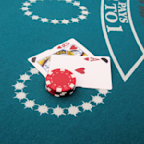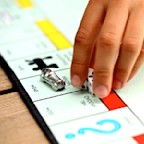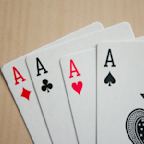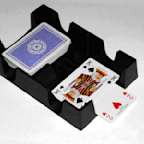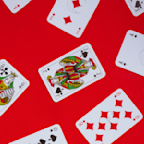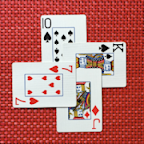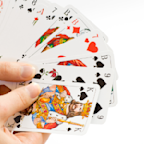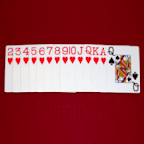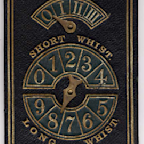Ads
related to: free hoyle pinochle card gamesvirtualslots.net has been visited by 10K+ users in the past month
Search results
Results From The WOW.Com Content Network
Pinochle. Aces around, dix or double pinochles. Score points by trick-taking and also by forming combinations of cards into melds.
Browse and play any of the 40+ online card games for free against the AI or against your friends. Enjoy classic card games such as Hearts, Gin Rummy, Pinochle and more.
Pinochle (English: / ˈ p iː n ʌ k əl /), also called pinocle or penuchle, is a trick-taking ace–ten card game, typically for two to four players and played with a 48-card deck. It is derived from the card game bezique ; players score points by trick-taking and also by forming combinations of characters into melds .
Discover the best free online games at AOL.com - Play board, card, casino, puzzle and many more online games while chatting with others in real-time.
Hoyle's Official Book of Games (later Hoyle Classic, Hoyle Card Games, or the Hoyle Series) is a series of computer games released from 1989 to 2016 that was initially developed and published by Sierra On-Line. The series focuses primarily on playing cards, but has also included board games, puzzles, dice, and dominos.
- Play Pinochle Online for Freeaol.com
- Michael J. Fox and Tracy Pollan celebrate youngest turning 22 – see the pics!aol.com
Edmond Hoyle (1672 – 29 August 1769) was an English writer best known for his works on the rules and play of card games.The phrase "according to Hoyle" (meaning "strictly according to the rules") came into the language as a reflection of his broadly perceived authority on the subject; use of the phrase has since expanded to any appeal to a putative authority.

